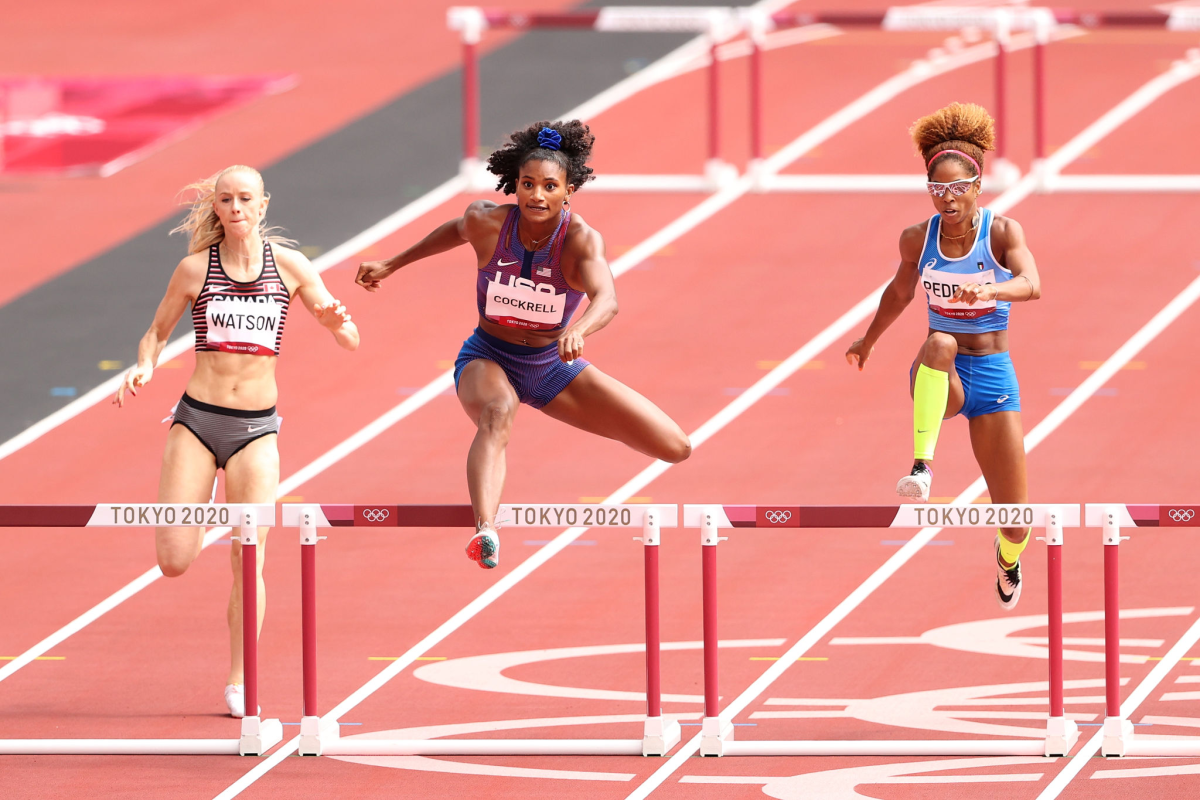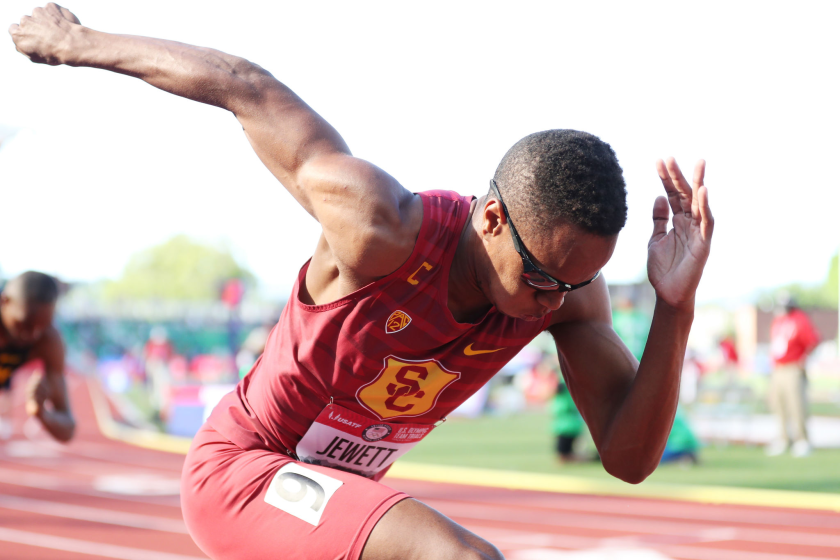Anna Cockrell ready to represent the U.S. and USC in the Tokyo Olympics

- Share via
TOKYO — Anna Cockrell was nervous.
On Saturday, Cockrell lined up for the first heat in the women’s 400-meter hurdles at Olympic Stadium. A top-three finish would ensure advancement to the semifinals.
“It was a lot of, ‘Oh, my goodness. Oh, my goodness. Oh, my goodness,’” Cockrell said. “And then just trying to focus on what I need to execute for the race.”
Cockrell settled in and finished third in 55.37 seconds to advance to Sunday’s semifinals.
“I’m glad I got to experience this, feel what this is,” she said, “and I’m ready for the semis. I’m ready to really run.”
Drawing motivation from his brother and the anime that’s been part of his life, Isaiah Jewett aims to make the jump from USC to the top the Olympic podium.
Cockrell, 23, is a member of a U.S. women’s 400-meter hurdles contingent that includes world-record holder Sydney McLaughlin and former record-holder Dalilah Muhammad, both of whom won their heats.
Cockrell, a North Carolina native, attended USC and won NCAA titles in the 100- and 400-meter hurdles in June. At the U.S. Olympic Trials, she qualified in the 400.
In the Olympic village, Cockrell said she has enjoyed spending time with other USC current and former USC athletes. Michael Norman, Rai Benjamin, Kendall Ellis and Isaiah Jewett are among those who made the U.S. or other countries’ Olympic teams. Muhammad also competed for USC.
“It’s been super helpful,” she said, “These are people I’m around all the time…. It’s nice to not have the pressure of competing as well as the pressure of not knowing anyone…. It’s comforting to have the group here.”
Jewett, who qualified Saturday for the men’s 800 meters semifinal, agreed.
“Being treated as an equal with these high, elite runners, it makes you less scared and it makes you more confident,” he said, adding, “You’ve got people behind your back that are really good that say, ‘Hey, you’ve got this. And that means the world to me.”
During these Games, many athletes have spoken openly to raise awareness about mental health. During her time at USC, Cockrell dealt with mental health issues, and she has publicly discussed the impact to help others.
“It’s always mixed emotions talking about it because it is very deeply personal,” she said. “And whenever I talk about it, I get a lot of response. And that can be gratifying and difficult because, on one hand, it’s nice to know that people have taken comfort in me sharing my experiences.
“But it’s also a little bit disheartening to know that so many people are also struggling…. But the response has been overwhelmingly positive. I’m just grateful that people want to listen.”
More to Read
Go beyond the scoreboard
Get the latest on L.A.'s teams in the daily Sports Report newsletter.
You may occasionally receive promotional content from the Los Angeles Times.









